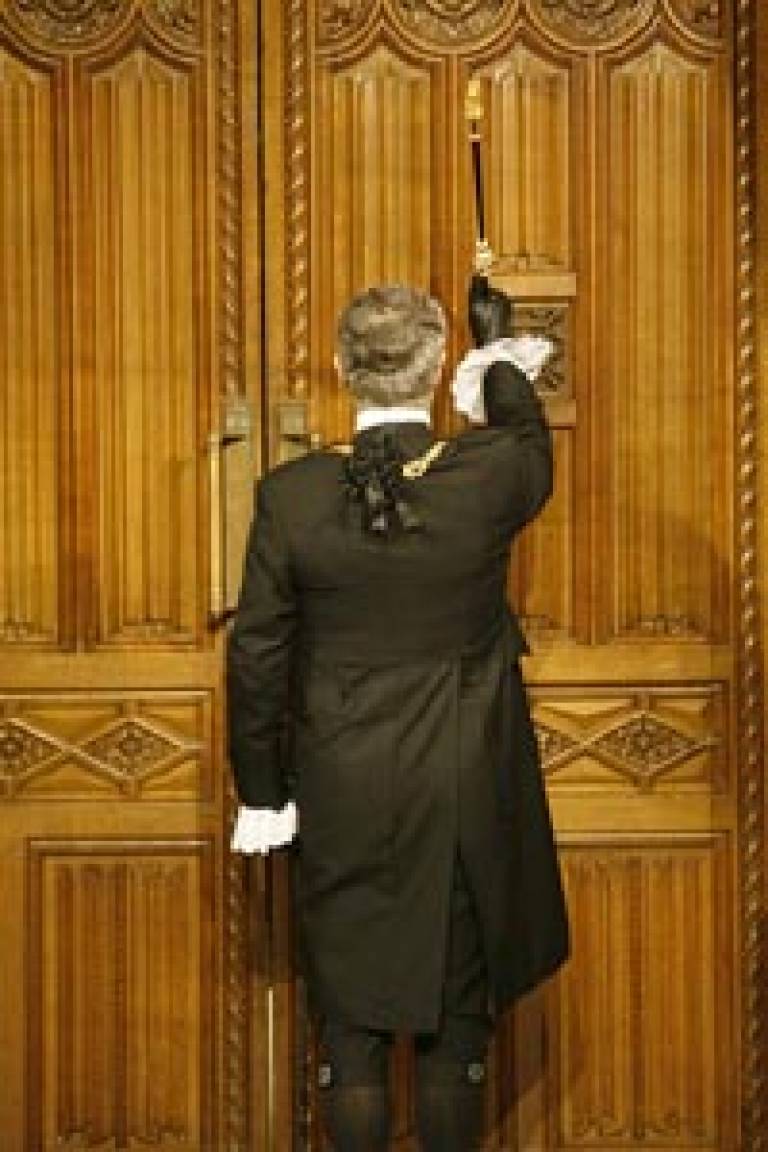Press release: Constitutional Changes to feature strongly in Queen's Speech
8 May 2012

Three constitutional items will almost certainly feature strongly in the coming session of Parliament: Lords reform, Scottish independence and changing the rules of succession. Lords reform is the biggest, and threatens to overwhelm the rest of the legislative programme, and cause big tensions between the coalition partners.
'Lords reform faces massive opposition in both Houses' said the Constitution Unit's deputy director Meg Russell.
The bill may fail: 'We know the reform proposals are opposed by the Lords itself, but there is so much resistance among Conservative MPs in particular that the bill may fail to get through the House of Commons', Meg Russell added.
It risks completely dominating the parliamentary session, she suggested. 'Committee stage of the bill must be taken on the floor of the Commons and could take six weeks or more. Lords reform risks being for Cameron what the Maastricht bill was for John Major: this took 23 days on the floor of the House in committee alone, and saw numerous painful rebellions. At the bill's Second Reading the rebels will seek to defeat the programme motion on its timetabling. If they succeed, the government will lose control over timing completely - but even if they fail, the bill may still be lost'.
There are numerous issues over which the plans may fall apart: 'Simply to win the programme motion the government may need to concede a referendum on reform, which Nick Clegg doesn't want. But defeats in the Commons are also likely on the powers of the Lords, the proportion of elected members, the electoral system, the proposed 15 year non-renewable terms, and the presence of the Bishops. Once MPs get hold of it, the bill may suffer a death of a thousand cuts', Dr Russell concluded.
Scottish independence will also loom very large. The UK and Scottish governments will start negotiating in the summer and autumn about how to legislate for the independence referendum. The UK government wants there to be a single question, just on independence; while Alex Salmond will hold out for a second question, on Devolution Max. If they cannot agree the UK government may withdraw its offer to legislate for the referendum at Westminster, throwing up the risk that any referendum authorised by the Scottish Parliament is open to legal challenge.
Changing
the rules of succession to the throne is much less
contentious. To give a lead to the other
countries where the Queen is head of state, the UK will want to legislate soon
to remove the rule of male primogeniture, that sons come before daughters, and
to remove one element of the discrimination against Catholics, that any heir to
the throne who marries a Catholic is removed from the line of succession.
(Catholics themselves and anyone else not in communion with the Church of
England will remain barred from succeeding.)
Notes for Editors
- For interviews, please contact the Unit's Press Officer Brian Walker on 07802 176347 (williambrianwalker@gmail.com) or the Unit's Administrator on 0207 679 4977 (v.spence@ucl.ac.uk).
- The Constitution Unit is an independent and non-partisan research centre based in the Department of Political Science at University College London http://www.ucl.ac.uk/constitution-unit/
 Close
Close


